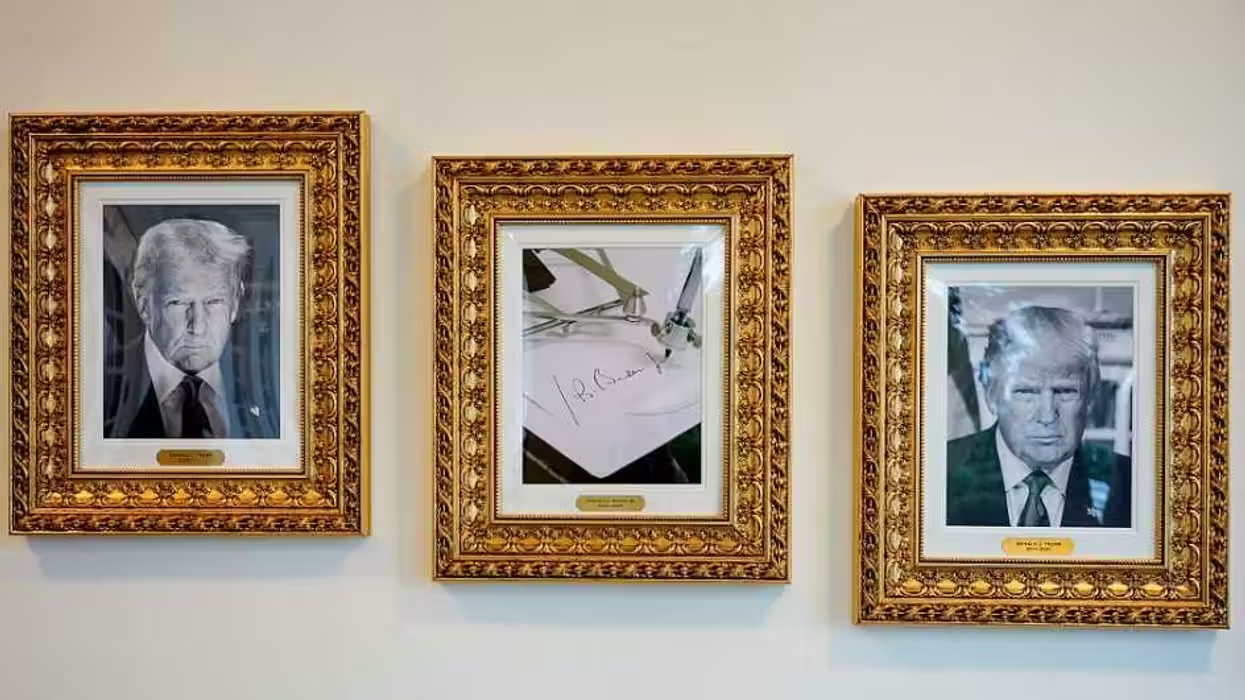
© 2025 Blaze Media LLC. All rights reserved.
Just like the way to confront bad speech is to drown it out with good speech, per the First Amendment, U.S. Senator Mike Lee (R-UT) argued Wednesday that the “antidote to bad government is more votes and more debates.”
The statement was made in reference to whether or not the filibuster rule and cloture procedures were a good thing to still have in the United States Senate.
“The filibuster is a fence. It has a purpose,” explained Lee, adding later, “the basic gist of the filibuster rule was that the orders of the day included unlimited debate, as long as any senator wanted to debate anything, they could.”
“It does have a reason and the reason is to encourage open, honest and robust debate and equality of senators.”
The filibuster is a parliamentary procedure in the Senate which allows for one or more Senators to delay chamber procedure so long as he or she continues to speak. The word itself comes from the Dutch word freibueter, or privateer.
“The fact is the filibuster has helped us stop a lot of bad legislation, and if we got rid of it, that would be used as a vehicle for stopping a lot of bad legislation that we would dislike,” Lee said adding that a theoretical future Democrat-controlled chamber would use the removal of the procedure to push through more of the same “bad legislation.”
“If we got rid of the filibuster rule, the Senate would become a much more partisan body,” admitted Lee, adding that though it would be more efficient “a lot of you would hate it for that reason.”
Lee, who was joined on the panel by Ben Domenech, publisher of The Federalist, said that a remedy to a common complaint about the filibuster would be to simply keep senators in the chamber. “One of the things that people find most frustrating about the filibuster right now are that a lot of good ideas are born in the House of Representatives, passed in the House of Representatives, get to the Senate and die,” conceded Lee. “But I think we could push a lot more things through...if we kept senators in session.”
He went on, saying: “If we forced lots of votes, you ultimately exhaust members and their willingness, their ability, their inclination to continue extending debate.”
Others in the conservative movement are not so enamored with the procedure. Proponents of removing the filibuster say that while it makes it hard to increase the size of government, it makes it just as hard for conservatives to decrease programs, departments and spending. According to Robert Romano:
Under this situation, it’s easier for the executive branch to violate the actual Constitution and just ignore the law than it is for Congress to eliminate or even limit a single statutory program, agency, or regulation. In this instance, the filibuster actually incentivizes the imperial presidency — and the inherent breakdown of limited government, the separation of powers, and the rule of law — something a great deal more dangerous.
In Lee’s view, better use of the filibuster would have prevented many of the provisions of the 2016 Omnibus Spending bill, of which his colleagues received the full version just 48 hours before voting on it. “I’m not that smart. I can’t read that much legislative text in 48 hours. And without this measure, those instances would become more frequent, not less.”
“If we were to invoke the filibuster rule, we would have had amendments to [the bill].”
The remarks were made at yesterday’s Heritage Action for America’s Conservative Policy Summit 2016, which featured several congressional leaders speaking on several topics essential to conservative voters in 2016 such as healthcare, economic freedom and the restoration of constitutional principles.
Want to leave a tip?
We answer to you. Help keep our content free of advertisers and big tech censorship by leaving a tip today.
Want to join the conversation?
Already a subscriber?
more stories
Sign up for the Blaze newsletter
By signing up, you agree to our Privacy Policy and Terms of Use, and agree to receive content that may sometimes include advertisements. You may opt out at any time.
Related Content
© 2025 Blaze Media LLC. All rights reserved.
Get the stories that matter most delivered directly to your inbox.
By signing up, you agree to our Privacy Policy and Terms of Use, and agree to receive content that may sometimes include advertisements. You may opt out at any time.






